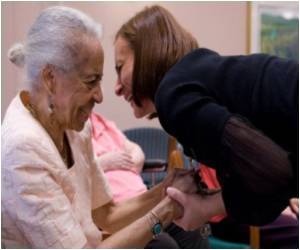
Three hundred caretakers of children with hydrocephalus filled out a questionnaire covering computer and Internet usage; hydrocephalus and shunts; social networking, blogs, and YouTube; hydrocephalus support groups; and personal information. The researchers focused on caretakers' use of the Internet and social media as well as the technological hardware involved in accessing them.
The researchers found that most caregivers in the study group (91.7 percent) use the Internet: 62.8 percent of caregivers reported using it 7 days per week and 83 percent at least 4 days per week. The Internet was mostly accessed on computers at home (rather than those at work) followed by using smart phones. Most caretakers who reported Internet use (95.1 percent) accessed some form of social media. Facebook and YouTube were the most commonly used; blogs, Twitter, and Myspace were accessed less frequently.
With respect to personal use of the Internet and related technologies, the researchers found socioeconomic disparities associated with race, income, and education. More whites than African-Americans used computers, smart phones, and the Internet; similarly, greater usage was found among persons with higher household yearly incomes and higher levels of educational achievement. The researchers found no significant differences in computer, smart phone, and Internet use when they looked at caregiver's age or geographic location (rural or urban); usage also did not differ according to the number of adults in the household.
Social media personal use, on the other hand, did not vary significantly when race, income, geographic location, or age of the caregiver was examined. Significant differences were identified when caregivers were separated according to their educational achievement. Almost all caregivers whose formal education stopped at high school graduation or earlier (99.1 percent) regularly visited social media sites. Fewer caregivers with higher education (92.1 percent) visited social media sites.
When hydrocephalus-related Internet and social media use were examined, the researchers found that the majority of caregivers who did use the Internet (81.9 percent) reported that they searched for hydrocephalus-related information online. A lower percentage of these caregivers (59.5 percent) used social media for hydrocephalus-related purposes. Most Internet-savvy caregivers found the Internet at least somewhat helpful in providing information on hydrocephalus. Despite this, the majority of caregivers (57.8 percent) expressed some skepticism about information learned online, and most (89.8 percent) expressed interest in obtaining guidance from neurosurgeons about what websites were most valuable to learn about hydrocephalus, shunt failure, and additional potential therapies.
Advertisement
The authors were surprised by the extent of hydrocephalus-related use of the Internet by caregivers and by their healthy skepticism concerning information provided in this manner. When asked, Dr. Robert Naftel, the first author, stated that the researchers "were also surprised by the fact that social media was reversing the socioeconomic disparity found in regular Internet use for hydrocephalus" and by the "low number of participants who used the Internet and social media for online support groups," although a review of other healthcare studies showed that the number of caregivers in the present study who used the Internet and social media for emotional support was actually a bit higher than in other groups.
Advertisement
In response to the finding that caregivers are very interested in obtaining guidance on the best websites, Dr. Naftel, now at the University of Pittsburgh, explained that the Birmingham group "is currently in the process of compiling a list of recommended sites. What is important is not only having great information, but also providing a platform that is pleasing from an audiovisual standpoint and is easily navigated. The same point can be made for YouTube videos. We recently performed another study that is currently being written about the quality, reliability, and comprehensiveness of YouTube videos on hydrocephalus. There is great disparity with these videos. Additionally, there is now a Birmingham Hydrocephalus Support Group on Facebook. It seems to be an ideal platform for caregivers to interconnect and plan events. Caregivers desire guidance in finding the best information on the Internet. Neurosurgeons have an opportunity to help direct them to trustworthy information that will help them in caring for their child and provide them with the social support for which many yearn."
Valuable information on hydrocephalus has long been provided on the Internet. The authors point out that as early as 2001, hydrocephalus was considered the best-covered neurosurgery-related topic on the Web. As Internet use continues to expand, the authors encourage neurosurgeons and hospitals to provide patients and caregivers with recommendations for websites that offer credible information on hydrocephalus. They also suggest that social media be utilized to a greater extent to provide patient education and caregiver support.
Source-Eurekalert











